These 14 Faculty Books Will Make Terrific Holiday Gifts
Fiction, nonfiction, memoir, history, sports, the economy—we’ve got you covered with this diverse list of books.
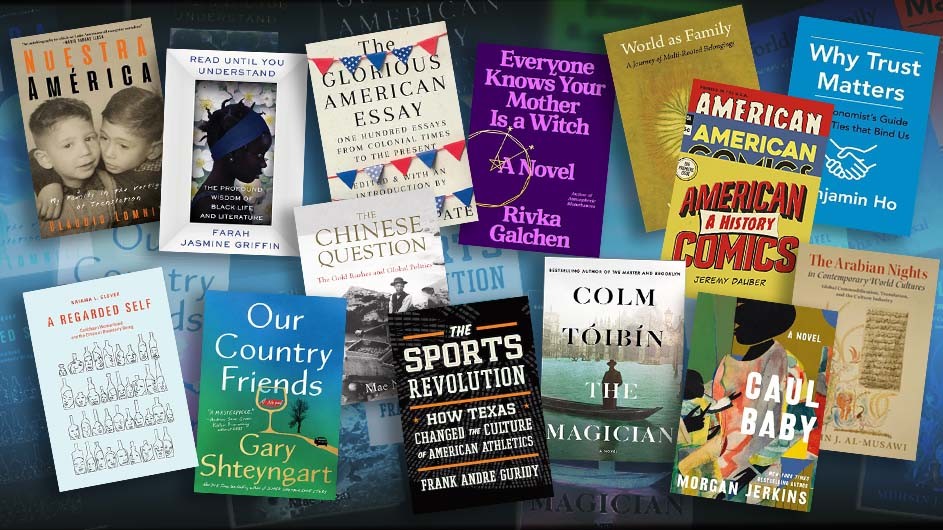
From Gary Shteyngart’s Our Country Friends, a pandemic novel that has been hailed as the “perfect novel for these times and all times, a representation of all that is good and true and beautiful about literature,” to Phillip Lopate’s The Glorious American Essay, which compiles three centuries of writing; Farah Jasmine Griffin’s Read Until You Understand, which grapples with the continuing struggle for Black freedom and the meaning of democracy; and Vishakha Desai’s World as Family, which mixes memoir and the broad sweep of history to outline how to be a global citizen, Columbia faculty have published wide-ranging books in 2021. Here is a sampling, all of them great gift ideas for this holiday season.
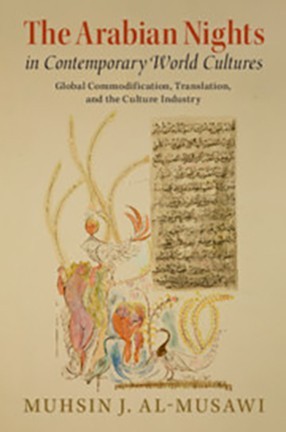
The Arabian Nights in Contemporary World Cultures
By Muhsin al-Musawi
The stories in the Thousand and One Nights, or the Arabian Nights, are familiar to many of us—from the tales of Aladdin, Sinbad the Sailor, and Ali Baba and his 40 thieves to the framing story of Scheherazade telling these tales to her homicidal husband, Shahrayar. The Arabian Nights in Contemporary World Cultures, by Muhsin al-Musawi, who teaches in the Department of Middle Eastern, South Asian, and African Studies, offers a rich and wide-ranging analysis of the power of this collection of tales. Al-Musawi explores previously untouched areas like the decolonization of the Arabian Nights. He shows how the stories connected with people from all levels of society, and how the Arabian Nights have been translated, appropriated, authenticated, and abused over time. Al-Musawi also examines how the Arabian Nights have drawn the attention of poets, artists, editors, musicians, filmmakers, political scientists, philosophers, and novelists like Michel Butor, James Joyce, and Marcel Proust.
Read a Columbia News interview with Professor al-Musawi about the book.
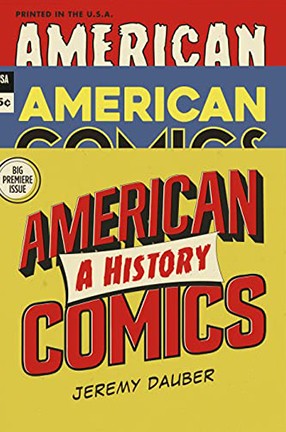
American Comics: A History
By Jeremy Dauber
Comics have conquered America. From the movies, where Marvel and DC films reign supreme, to television, where comics-based shows like The Walking Dead have become among the most popular in cable history, to convention halls, best-seller lists, Pulitzer Prize-winning titles, and MacArthur Fellowship recipients, comics shape American culture, in ways high and low, superficial, and deeply profound. In American Comics, Jeremy Dauber, the Atran Professor of Yiddish Literature, Language, and Culture, takes readers through the fascinating, but little-known history of the medium. He starts with the Civil War and cartoonist Thomas Nast, creator of the iconic images of Uncle Sam and Santa Claus; then moves on to the golden age of newspaper comic strips and the first great superhero boom; the moral panic of the Eisenhower era, the Marvel Comics revolution, and the underground comix movement of the 1960s and ‘70s; and, finally, into the 21st century, taking in the grim, gritty Dark Knights and Watchmen, alongside the rise of the graphic novel by acclaimed practitioners like Art Spiegelman and Alison Bechdel.
Read a Columbia News interview with Professor Dauber about the book.
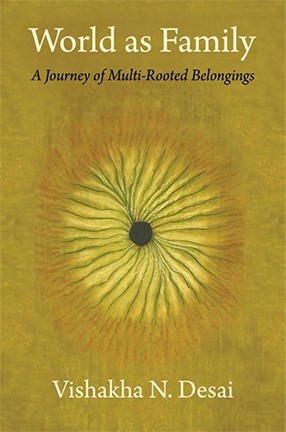
World as Family: A Journey of Multi-Rooted Belongings
By Vishakha Desai
Vishakha Desai, senior advisor for global affairs and SIPA research scholar, uses her life experiences to explore the significance of living globally and its current urgency in her new book, World as Family. She weaves her narrative arc from growing up in a Gandhian household in Ahmedabad, India, to arriving in the United States as a 17-year-old exchange student and her subsequent career as a dancer, curator, institutional leader, and teacher. Through her personal story, set against the broad sweep of political and social changes in the two countries she calls home, Desai reframes the idea of what it means to be global by considering how to lead a life of multiple belongings without losing local and national affinities.
Read a Columbia News interview with Vishakha Desai about the book.
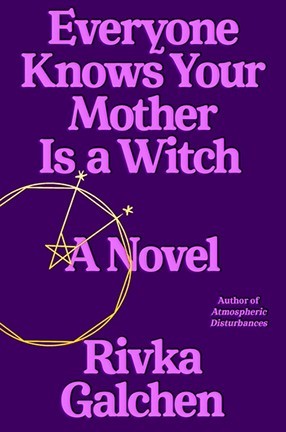
Everyone Knows Your Mother Is a Witch
By Rivka Galchen
In 1618, in the German duchy of Württemberg, plague is spreading, The Thirty Years’ War has begun, and fear and suspicion are running rampant. In the small town of Leonberg, Katharina Kepler is accused of being a witch. Katharina is an illiterate widow, known by neighbors for her herbal remedies and her successful children, including her eldest, Johannes, the Imperial Mathematician and renowned author of the laws of planetary motion. But he must now turn his attention from the celestial spheres to defending his mother. Drawing on historical documents, Professor Rivka Galchen, who teaches in the School of the Arts' writing program, elaborates on this story in her second novel, Everyone Knows Your Mother Is a Witch.
Read a Columbia News interview with Professor Galchen about the book.
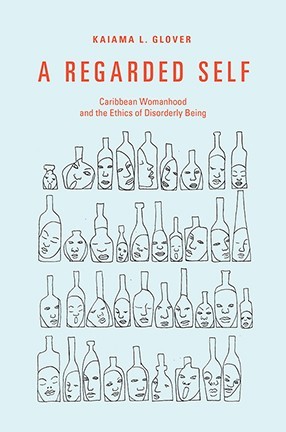
A Regarded Self: Caribbean Womanhood and the Ethics of Disorderly Being
By Kaiama Glover
In her new book, A Regarded Self, Kaiama Glover, the Ann Whitney Olin Professor of French and Africana Studies at Barnard, reframes Caribbean literary studies by championing unruly female protagonists who refuse to abide by the constraints of their communities. Concentrating on novels by Marie Chauvet, Maryse Condé, René Depestre, Marlon James, and Jamaica Kincaid, Glover shows how these authors' women characters enact practices of freedom that privilege the self in ways unmediated and unrestricted by group affiliation. They challenge the primacy of the community over the individual and propose provocative forms of being.
Read a Columbia News interview with Professor Glover about the book.
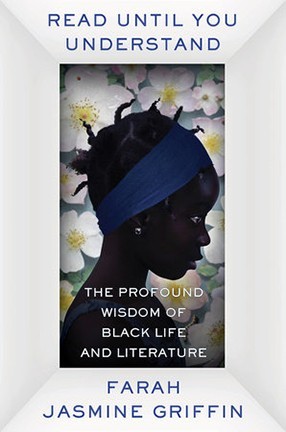
Read Until You Understand: The Profound Wisdom of Black Life and Literature
By Farah Jasmine Griffin
In her new book, Read Until You Understand: The Profound Wisdom of Black Life and Literature, Farah Jasmine Griffin, the William B. Ransford Professor of English and Comparative Literature and African-American Studies, entwines memoir, history, art, and scholarship to share a lifetime of discoveries. She discusses the ideas that inspired Frederick Douglass and Malcolm X, the music of Marvin Gaye and Stevie Wonder, the literature of Phillis Wheatley and Toni Morrison, the art of Romare Bearden, and much more. Exploring these works through such themes as justice, rage, self-determination, beauty, joy, and mercy allows Griffin to move from her story—including losing her father when she was a child and her aunt’s love of yellow roses—to Gil Scott-Heron’s album, Winter in America. Throughout Read Until You Understand, Griffin grapples with the continuing struggle for Black freedom and the meaning of American democracy.
Read a Columbia News interview with Professor Griffin about the book.
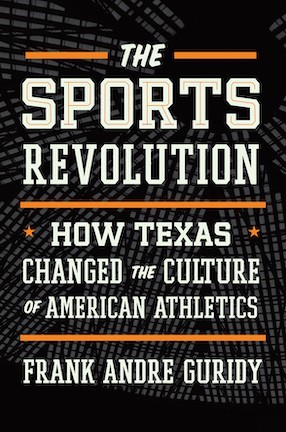
The Sports Revolution: How Texas Changed the Culture of American Athletics
By Frank Guridy
In the late 1970s, sons of wealthy Texas oilmen poured money into professional sports around the time Jim Crow laws were lifted in the state, resulting in more integrated teams. Simultaneously, the enormously popular Monday Night Football television show made Black athletes, like Earl Campbell “the Tyler Rose,” superstars that helped the teams' white managers and owners become incredibly wealthy. The white owners continued to maintain the most power in this relationship, but the players were becoming more and more indispensable. Frank Guridy, associate professor of history, examines in his new book, The Sports Revolution: How Texas Changed the Culture of American Athletics, how the confluence of the prominence of professional sports in Texas, television personalities, and social movements from the 1960s and 1970s shaped the future of American sports and gave voices to people from marginalized communities.
Read a Columbia News interview with Professor Guridy about the book.
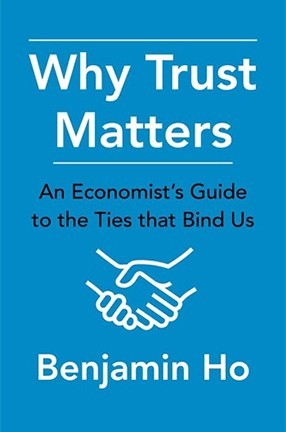
Why Trust Matters: An Economist’s Guide to the Ties That Bind Us
By Benjamin Ho
Have economists neglected trust? The economy is fundamentally a network of relationships built on mutual expectations. Every time we interact with another person—to make a purchase, work on a project, or share a living space—we rely on trust. Institutions and relationships function because people place confidence in them. Retailers seek to become trusted brands; employers put their trust in their employees; and democracy works only when we trust our government. In his new book, Why Trust Matters, Professor Benjamin Ho reveals the importance of trust to how we understand our day-to-day economic lives.
Read a Columbia News interview with Professor Ho about the book.
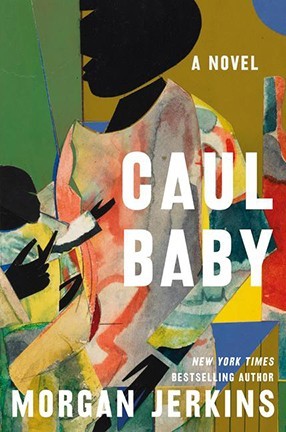
Caul Baby
By Morgan Jerkins
Caul Baby, the debut novel set in Harlem by Morgan Jerkins, an adjunct professor in the writing program at the School of the Arts, blends generational family drama with magical realism to tell a story about Black motherhood and matriarchs, community and tradition, gentrification and ownership. Caul Baby was an amalgam of being inspired by Harlem and city living, said Jerkins, while also learning about the precariousness of Black motherhood in America.
Read a Columbia News interview with Professor Jerkins about the book.
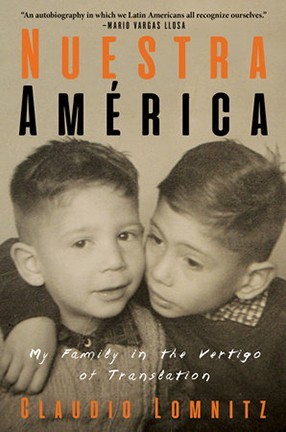
Nuestra América: My Family in the Vertigo of Translation
By Claudio Lomnitz
In his new book, Nuestra América: My Family in the Vertigo of Translation, Anthropology Professor Claudio Lomnitz traces his grandparents’ exile from Eastern Europe to South America in the 1920s. Trained to defy ghetto life with the pioneering spirit of the early Zionist movement, the couple became involved in the Peruvian leftist intellectual milieu and its practice of connecting Peru’s indigenous past to an emancipatory internationalism that included Jewish culture and thought. After being thrown into prison supposedly for their socialist leanings, Lomnitz’s grandparents were deported to Colombia. The story then continues to Chile during World War II, Israel in the 1950s, and, finally, to Lomnitz’s youth, living with his parents in Berkeley, California, and Mexico City.
Read a Columbia News interview with Professor Lomnitz about the book.
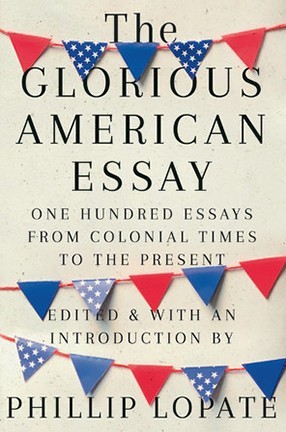
The Glorious American Essay: One Hundred Essays From Colonial Times to the Present
By Phillip Lopate
From Cotton Mather and Benjamin Franklin to David Foster Wallace and Jamaica Kincaid, Professor Phillip Lopate’s new anthology, The Glorious American Essay: One Hundred Essays From Colonial Times to the Present, covers three centuries of U.S writing. Lopate, who teaches in the writing program at the School of the Arts, gathered pieces that address—sometimes critically—American values or have a subtext about being American. Early American writers struggled to establish a recognizable national culture. Mid-19th century writers no longer lacked confidence, but faced new reckonings with the oppression of Blacks and women, while the strong tradition of nature writing runs from John James Audubon, Henry David Thoreau, and John Muir to Rachel Carson and Annie Dillard. Marginalized groups in all periods use the essay to assert or to complicate notions of identity. The volume includes critical, personal, political, philosophical, humorous, literary, polemical, and autobiographical essays, along with sermons, letters, speeches, and columns dealing with a wide variety of subjects.
Read a Columbia News interview with Professor Lopate about the book.
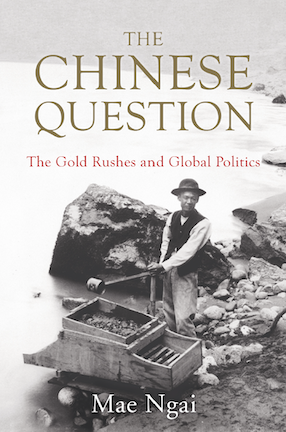
The Chinese Question: The Gold Rushes and Global Politics
By Mai Ngai
Recent violence and racism against Asian Americans and Pacific Islanders in the United States can be linked to xenophobia and some politicians’ anti-China rhetoric around the COVID-19 pandemic. However, some of the recent acts of hate against Asian Americans can be traced to much deeper, historical roots of anti-Chinese sentiment in the United States. In her latest and timely book, The Chinese Question: The Gold Rushes and Global Politics, Mae Ngai, professor of Asian American studies and history and co-director of the Center for the Study of Ethnicity and Race, reveals the origins of prejudice against Chinese immigrants in the United States and the Anglophone world in the late-19th century. Ngai unravels misleading stereotypes about Chinese Americans, and Asian Americans in general, that have been perpetuated in academia for decades.
Read a Columbia News interview with Professor Ngai about the book.
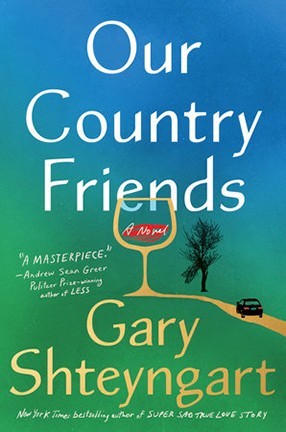
Our Country Friends
By Gary Shteyngart
Our Country Friends, the new novel by School of the Arts Writing Professor Gary Shteyngart, is set in the rolling hills of upstate New York, where a group of friends and friends-of-friends gathers in a country house to wait out the pandemic. Over the course of six months, new friendships and romances take hold, while old betrayals emerge, forcing each character to reevaluate whom they love and what matters most. The unlikely cast of characters includes a Russian-born novelist, his Russian-born psychiatrist wife, their precocious child who is obsessed with K-pop, a struggling Indian American writer, a wildly successful Korean American app developer, a global dandy with three passports, an essayist from the American South, and a movie star, the Actor, whose arrival upsets the equilibrium of this chosen family.
Read a Columbia News interview with Professor Shteyngart about the book.
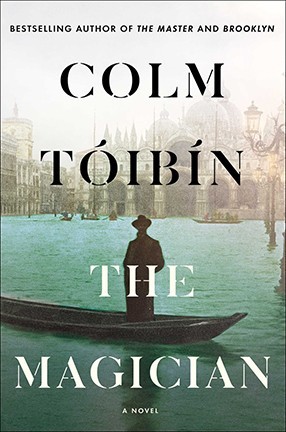
The Magician
By Colm Tóibín
The Magician, a new novel by Colm Tóibín, the Irene and Sidney B. Silverman Professor of the Humanities, is a portrait of the writer Thomas Mann and his family, as well as the times in which he lived: Germany at the turn of the 20thcentury, the first world war, the rise of Hitler, World War II, the Cold War, and Mann’s exile, first to Switzerland, then France, and, eventually, America. The Magician explores the complexity of Mann’s life, from his private desires recorded in his diaries to his public persona as a successful novelist who won the Nobel Prize in Literature.
Read a Columbia News interview with Professor Tóibín about the book.